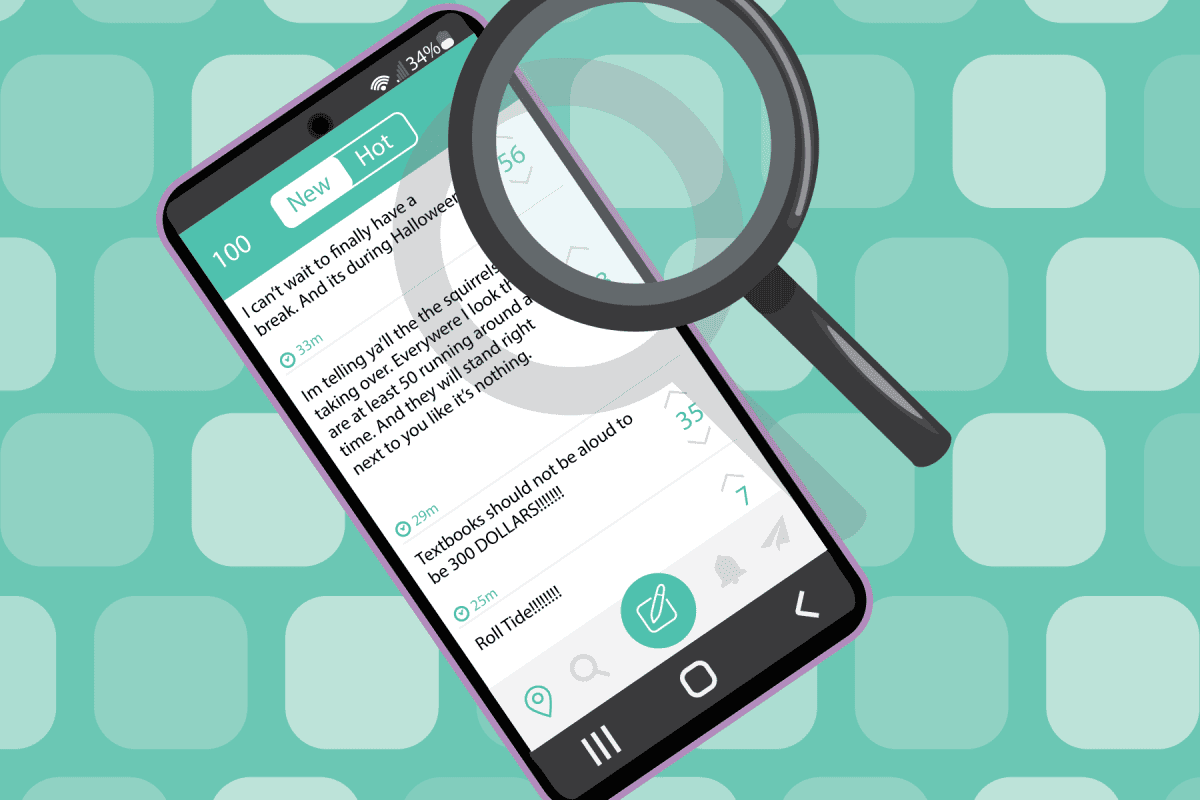Yik Yak, a trending app at most colleges, allows students to post anonymously within their campus community.
The app functions very similarly to X, except the posts are anonymous and the profiles aren’t public. Yik Yak uses people’s location to determine their campus in order to assist students with “finding their herd.” The app allows college students to explore different communities while also providing a space for anonymous interaction.
The anonymity the app offers has both its benefits, such as being constantly plugged into the juiciest stories on campus, and its drawbacks, including misinformation spreading at the touch of any given student’s fingertips.
“Yik Yak is popular because it’s essentially an anonymous group chat for the entire school, even alumni,” said Courtney Stringer, a sophomore majoring in accounting. “It also allows you to discuss happenings in real time, so it can be a source of news for some students.”
Accessibility to real-time chatter on campus, from posts about the results of midterms to threads about which professors are the best, draws students into the app and instantly connects them to thousands of other students.
“I think Yik Yak is popular because of the anonymity, and the community that comes along with it,” said Cannon Williams, a sophomore majoring in civil engineering. “At a massive university like this, talking to someone who goes to this school and having it be anonymous makes it easier to comment, reply and talk to people.”
The app allows people to express sides of themselves that they don’t feel comfortable sharing out loud or in their everyday lives. This includes group chats like “UA Gossip Girl,” where people go to receive the latest drama, and “Bama Frats,” where people go to find out which house is hosting a party.
“It’s easier for me to ask questions or ask for advice knowing that I’m only being seen as a user,” Stringer said. “It’s also easier to post opinionated content because no one is tying those opinions to me.”
Some students, though, say that this idea of full anonymity feels dystopian and that there must be a catch to all of the positives they see throughout the platform.
Yik Yak is well aware of the dangers of the app, and in 2017, it shut down due to a plethora of cyberbullying scandals. However, the app re-emerged in 2022, supposedly better prepared to moderate posts and messages.
Full anonymity online can help people express themselves in many different ways, but that anonymity can become exploited and weaponized.
“Anonymity may increase the likelihood of aggression because it allows more psychological distance from the victim,” said Kristina McDonald, an associate psychology professor at the University. “When people are anonymous, they cannot see the consequences of their bad behavior.”
In the comeback post on its website, Yik Yak stated it was “committed to making Yik Yak a fun place free of bullying, threats, and all sorts of negativity,” but students have seen this idea of anonymity being used for harmful purposes.
In 2023 on A-Day, the football team’s spring scrimmage, there was talk about potential violence and crime occurring after the game. Some students turned to Yik Yak to anonymously post hateful comments about Black players and attendees, claiming they were behind the chaos.
“These comments were not only unsavory,” Stringer said. “The amount of upvotes in agreement of them was also frightening.”
Williams also called the anonymity “frightening.”
“I’ve seen some very hateful stuff posted, and even worse, people in the comments agreeing with it,” Williams said.
Mcdonald said regardless of how users choose to use the app, it poses inherent risks.
“It seems like when you know who is being mean to you, you can make more sense of the aggression, like why they may have acted that way,” McDonald said. “When you have no idea who is being aggressive to you, it is much more difficult to understand and you may feel more out of control and like a victim.”









